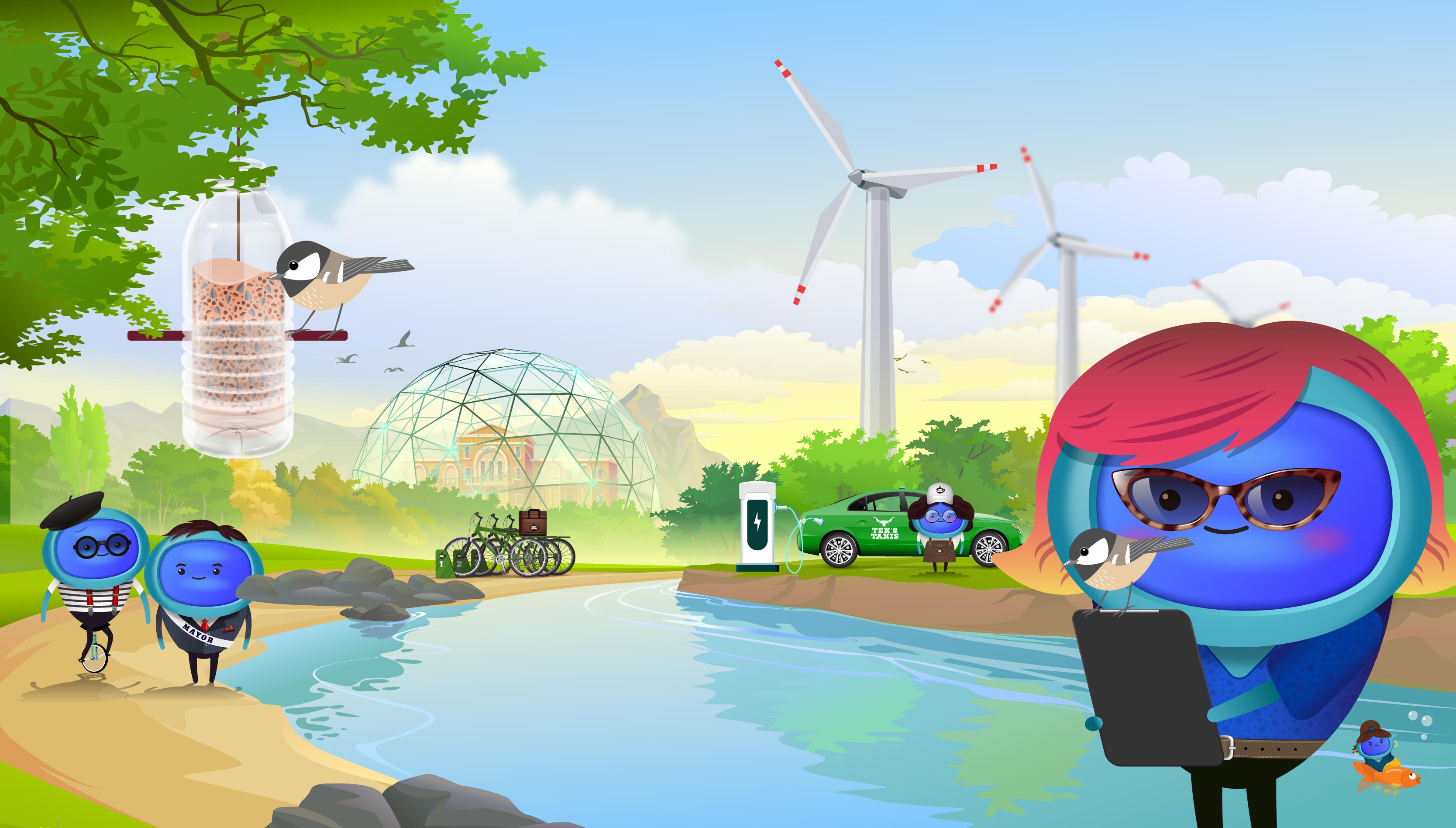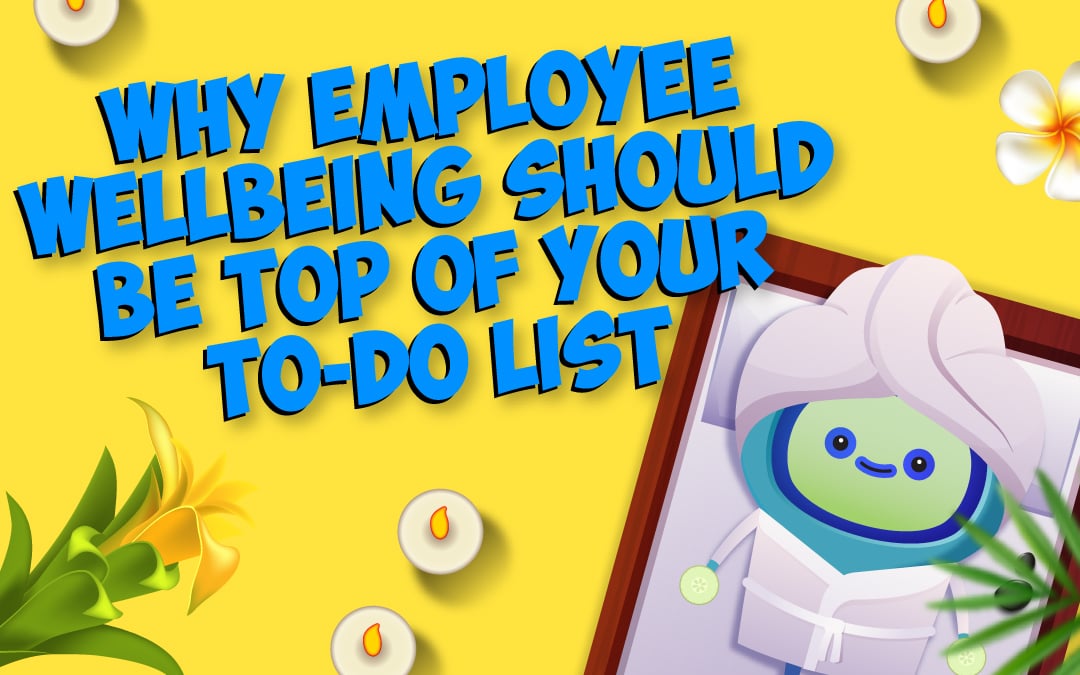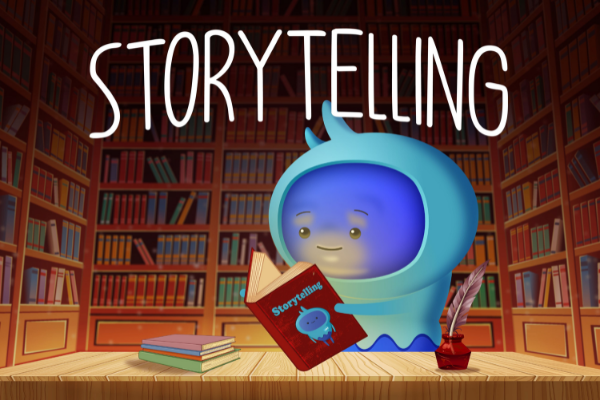If ESG is an unexplored topic for you, you’re in the right place. We can figure it out together. I’m going on a mission to upskill myself in ESG: how important is it? What are progressive businesses doing? Are there any quick wins? And what can I do as a people and learning professional?
Other than vague confidence over what the acronym stands for, I’m in the dark.
I start with the basics, reading our very own blog (thank you, Tom Gagen) – What on Earth is ESG and Why Does it Matter to Your Business? And I condense it down to this:
Environmental – looking after the planet and being eco-friendly
Social – business impact on society and giving back
Governance – with great power comes great (ethical) responsibility
Attract and retain
There’s a handy bit on why it matters to your business, which sparks a memory of how important a strong stance on ESG can be for recruitment. I can’t find the exact report, but this article from 2019 speaks to it – ‘Nearly 40% of millennials would take a pay cut to work at an environmentally responsible company.’ I’d bet it matters even more to people three years on with increasing awareness around climate change and diminishing resources.
We’ve had a lot of downtime (cheers Covid) to think about our values and what we care about – data suggest that we’re shining the same light on where we work and what that business stands for.
Personally, I wouldn’t work somewhere that was doing harm – intentionally or otherwise (and not remedying it); I don’t want to be part of the problem, but it also hasn’t been high on my agenda or something I’ve questioned previous employers on.
I’m now wondering how we articulate our position on ESG, our footprint, supply chain etc and translate that into our job ads and conversations with new recruits….
Other benefits of flying the ESG flag include luring in investors, mitigating risk and a link to stronger financial performance.
Like so many things (diversity, anyone?), doing the right thing or doing good stuff in the business world is massively incentivised when backed by an inflated bottom line, even if we’d like the generally positive impact to be sufficient. We can get into a debate on whether true altruism (selflessness) is possible in people, but I’d certainly argue businesses err on the side of self-interest – even if they do top-notch things in the process.
ESG in practice
I want to know what forward-thinking ESG practices companies are engaging with, and I find this story from HBR's feature: 'Creating the best workplace on earth'.
‘When the firm (Arup) builds a suspension bridge, for example, it looks beyond the concerns of the immediate client to the region that relies on the bridge. To do so, Arup’s people collaborate with mathematicians, economists, artists, and politicians alike.’
I’d say they’re playing the long game. Short-term it will cost more time and money to be so diligent and collaborative. Long-term, such projects might be more interesting and challenging – attracting and keeping great people. They’re reaching for community buy-in which is great for their brand and reputation, and it might just be a better bridge because it’s localised. Including a range of perspectives and priorities can also lead to innovation.
Arup is being mindful of the world beyond their constructed walls and leveraging what’s going on – turning the complexity into opportunity. This one is a story of social good.
They also partner with Bridges to Prosperity, providing vital access in impassable areas around the world. Previously, they’ve worked alongside students from local universities to share skills and build experience.
Just reading this stuff is creating a lovely association with Arup – you’d certainly feel proud to work there if this is the status quo. You’d feel a sense of purpose and meaning – which we’re all searching for more than ever from our 9-5.
Who Gives a Crap is perhaps a more recognised brand, fighting the good fight (or as their website currently states, ‘uncrap the world.’ Their recycled toilet paper helps to reduce deforestation. 50% of their profits are donated to providing clean water and toilets. This a business that puts its money where its mouth is – their entire ethos is built around ESG. It’s worked well for them, they’ve been going strong since 2012, before everyone else was talking about ESG - ahead of the curve.
Defying limitations
But what can we do where there’s a less obvious connection between what our organisation does, and saving the planet or giving back? And what about small, time poor or cash poor businesses, which make survival-based choices, above societal ones?
A recent report by ID Crypt Global suggests that 92% of UK SMEs had no intention to actively implement ESG practices in the future. The cost, lacking knowledge and not perceiving the benefit are cited as the core reasons.
Thinking green might be easier for start-ups or those operating on a smaller scale in terms of integrating ethical practices and decisions early, rather than trying to change things on mass down the road. But initially, it can really hurt to set ESG in motion – financially and time-wise, because to have real impact, there aren’t many cheap and cheerful shortcuts. Not all businesses are in the fortunate position of being able to weather the pain of pursuing ESG or bringing in experts to guide them through it.
What's possible in this scenario?
I’d get started with Looka's '10 ways to make your small business more sustainable'. Amongst their recommendations, checking your source materials, green shipping, going paperless and reusable stuff in the office. They point out that consumers are increasingly prepared to pay more to support sustainable business practices. But there’s a tug-of-war going on for many consumers between the cost of living and doing good…the right thing isn’t always affordable.
Things like the Cycle to Work Scheme seem win-win. Over 400,000 employers are signed up to the government initiative, saving on their company NI contributions and reducing pollution.
Other feasible ideas I’ve stumbled upon:
- Buying second-hand office furniture and refurbished IT equipment
- Researching B-Corp accreditation (‘companies which meet high standards of social, environmental, performance, transparency and accountability), and building this into your long-term strategy
- Team volunteering to clean up local areas and support local charities
- Switching to energy-efficient options and looking at how waste is managed
- Work with partners who share your values and care about sustainability
- Ask your people for ideas, connections which can help or things they’ve seen work well at other companies
- Be clear on where you are. Where can you improve? What are your goals? Okay, progress might not be possible overnight but at least you can see and monitor the gap between here and your aspirations.
What's the role of L&D here?
One of the clear themes emerging from my research is a lack of accountability. Who owns this? We can jump to the usual suspects – the leaders, but what if they’re not taking it seriously? Do we sit back? Perhaps we all have a duty to the world we inhabit to at least try and get the conversation going…
We can include educational ESG content as part of our offering and support people (support being the keyword) to inform themselves and make eco-friendly choices in their personal lives.
ESG can be built into leadership development programmes so that emerging leaders are able to consider ESG as part of the business SWOT (strengths, weaknesses, threats and opportunities) analysis and act.
We can apply an ESG lens to our own department and teams, and how we operate – unnecessary travel, printing, collaborating with suppliers who are making ethical moves. We can also look at the learning provision in terms of equality, diversity and inclusion and communicate what we’re doing to ensure accessibility and belonging are front and centre.
Real experience is often the best way to learn – can these experiences also be positive for the community? Perhaps team-building training is constructing a playground for disadvantaged children (I’ve done this with Santander and it was incredibly impactful, for the volunteers and the kids). Can we leverage local activities for learning?
Maybe it’s time to look into offering an apprenticeship programme or taking on a few summer interns, supporting young people to develop work experience.
We can petition our businesses to put ESG higher on the agenda, backed by data and case studies, create a diverse committee to interrogate what’s possible, do the research and start asking questions.
It’s crucial that we upskill ourselves on ESG, just as with AI – both are moving quickly forward. If we keep pace (or at least attempt to), we increase our chances of seizing opportunity, instead of being seized by ignorance. Now that’s sustainably sourced food for thought.
Want to learn more about ESG?
If you're ready to embrace the ESG superhero spirit and make the world a better place, check out our brand-new Environmental, Social & Governance (ESG) eLearning Collection!
Courses cover key topics, including energy efficiency, waste management, green technology and of course, corporate social responsibility. These, and other important topics can be easily accessed to help do your bit for your business and the world around.
Check out the collection today or download our FREE ESG Toolkit containing a range of resources to help you start creating a more considerate, sustainable and responsible workplace!

Gemma Glover
Head of People





